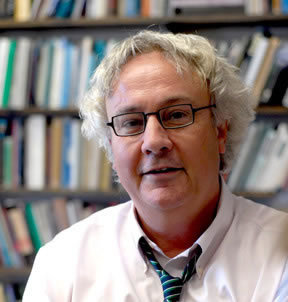Trump’s policies hyperbolic, emotional, alarming: philosopher

TEHRAN – Charles Taliaferro, a professor of philosophy at St. Olaf College, says Donald Trump’s policies are hyperbolic, emotional, and alarming.
In an interview with the Tehran Times, the professor also says Trump and his team do not make distinction “between extremes that one finds with Sunni jihadists, al Qaeda, the so-called Islamic state, and the vast number of Sunni, Shite and other Islamic communities that stand for justice and peace.”
Following is the text of the interview:
Q: What are President Trump’s major domestic policies?
A: In light of campaign promises, his inauguration speech, press conferences, and his choice of a cabinet, the President's domestic agenda is to increase employment, enhance economic national prosperity, reduce what he sees as an alarming crime rate, and to protect the homeland by expelling what he believes to be dangerous illegal immigrants. He believes that one of the chief reasons why there has not been greater prosperity in the last eight Obama years has been excessive regulations on financial institutions such as banks and on coal and natural gas industry. In any case, I believe that Trump's domestic policies have been and will in the future be what he claims, namely Trump will make every decision in line with an "America First" philosophy. As for impact, I hesitate to predict, in light of my predicting that Clinton would win a narrow victory which she did in the popular vote which was officially finalized in December as Clinton receiving 2.9 million votes more than Trump. But one impact that we can see already is a deep divisiveness over information and trust. According to his press secretary, Trump believes the official record of the popular vote is wrong, for it was the outcome of millions voting illegally, but so far no one has provided any concrete evidence for this. Trump claims that mainstream media is, in many cases, "fake news." Whom or what should we believe? Trump claims one and a half million people were at his inauguration, while crowd scientists contend that there were approximately 160,000, and the protest march against Trump the next day were estimated by experts to be 470,000. The cultural climate in the Trump years seem as though they will be divisive with fermenting distrust of those who oppose Trump. His policies, domestic and foreign, are often advanced in hyperbolic, emotional language that is alarming, referring on the campaign trail to a trade agreement, the Trans-Pacific Partnership, as a "rape of our country." Rape? Some Americans may think, perhaps rightly, the treaty creates a trade imbalance, despite there being lots of evidence that the treaty has actually increased American exports and thus created or sustained a large American workforce, but calling it a "rape" either reveals no understanding of the profound suffering involved in rape, or a radical exaggeration of the ill effects of the treaty on the United States.
Q: Why did Trump order a ban on immigration from 7 Muslim countries such as Iran?
A: There is evidence that Trump and his advisors believe that what they call Islamic extremism poses an existential threat to the United States. They do not seem to draw any distinction between extremes that one finds with Sunni jihadists, al Qaeda, the so-called Islamic state, and the vast number of Sunni, Shite and other Islamic communities that stand for justice and peace. As many have observed, it is also curious that Trump left out Saudi Arabia and Egypt on his list. In any case, Trump does have deep distrust of Muslims, as evidenced in his many comments such as his famous line calling for "a total and complete shutdown of Muslims entering the United States" until they can be vetted. In my view, if Trump's goal is to protect the United States from terrorism, he should not focus on Muslim immigrants or the current USA Muslim population, which is estimated to be 3.3 million. There is more terrorism attributed to white supremacists than Muslims, according to the FBI. It is paradoxical, too, that in the New York Police Department which protects Trump in his home city of New York, one thousand police officers are Muslim.
Such a distrust of Islam has not always been the order of the day. The great heroism of Abd el-Kader who, in 1860, protected thousands of Christians during a terrifying riot in Damascus Syria, That act, and his extraordinary fairness in his fighting for freeing his homeland Algeria from the French, was so celebrated in America that a city was named in his honor in Iowa, Elkader.
Q: How do you assess Trump's foreign policy in general and about Iran in particular?
A: It is too early to tell and very hard to predict. For example, while Trump has been a relentless critic of China, the recent nuclear threat of North Korea in Asia has caused his representatives to urge China to reign in Kim Jong-un. The situation is fluid in Asia and in the case of Iran. Within a month of being president, there have already been threats to put Iran "on notice," and an understandable response from Iran's Supreme Leader that was widely covered in the United States press. If Trump can be persuaded that he was wrong when, in early February, he, in my view, wrongly called Iran the number one terrorist state, and if Trump can see economic advantages for the USA to engage in trade and renewed diplomatic relations, the future of Iran-USA relations are promising. I hope and pray that this comes about.
